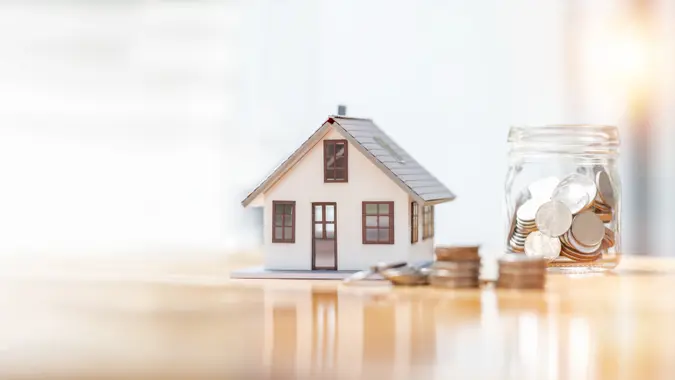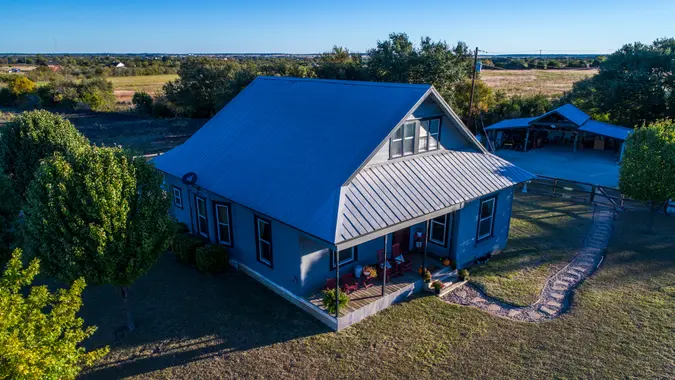Mortgage Rates Are Unpredictable — Should You Hold Off or Buy as They Hit Record Lows?

Commitment to Our Readers
GOBankingRates' editorial team is committed to bringing you unbiased reviews and information. We use data-driven methodologies to evaluate financial products and services - our reviews and ratings are not influenced by advertisers. You can read more about our editorial guidelines and our products and services review methodology.

20 Years
Helping You Live Richer

Reviewed
by Experts

Trusted by
Millions of Readers
Mortgage rates reached their lowest level in a month the week of December 5, according to Freddie Mac. That’s good news for homebuyers, although perhaps not as good as they might think. The declines over the last month followed steady increases in September and October — which followed a roughly three-month downward trend.
Experts still expect rates to fall slightly over the coming year, but those predictions change by the month, which underscores how unpredictable rates really are. That leaves buyers wondering whether they should buy now, or hold off until rates eventually come down.
In most cases, the best time to buy is when you can afford to buy, regardless of what’s happening in the housing market.
Waiting Might Cost You
Lower rates are a dual-edged sword. On the one hand, they make loans more affordable. On the other hand, they drive up demand, which results in higher home prices, as underscored by Freddie Mac.
Even without declining rates, real estate values tend to appreciate over time. In a recent analysis of Freddie Mac price data, Realtor.com found the average five-year return on home prices to be 26%.
Delaying your purchase by just one year hoping to score a lower rate could actually cost you more in the long run, even if rates drop, and not only because of the higher purchase price. You could also lose a year’s worth of appreciation, and rather than build equity, you’ll continue paying rent.
Rates Are Already Lower Than the Historic Average
Current rates are far more typical than the ultra-low rates of the pandemic era. Despite being higher now than they’ve been in roughly 20 years, they’re actually lower than the historic average.
The average rate from 1971 (when Freddie Mac began tracking rates) through Dec. 4 is 7.72%, according to a Trading Economics analysis of Freddie Mac data. That average includes an all-time low of 2.65% in January 2021 and an all-time high of 18.63% in October 1981. Left strictly to market forces, it might not be realistic to expect rates to fall to the 5% to 6% many buyers, particularly those too young to remember higher rates, are holding out for.
You Can Compensate for a High Interest Rate
If you’re ready to buy now — you’ve got down payment money plus emergency savings, your credit is in great shape and you can afford the payments — a higher mortgage rate doesn’t have to hold you back. But, according to Chase, you might have to make some compromises, such as:
- Buying only as much house as you need vs. all the house you want
- Considering neighborhoods on the outskirts of higher-priced areas
- Making a larger down payment
- Selecting a mortgage loan with no or low restrictions on when you can refinance
Date the Rate, Marry the House
As the saying suggests, a mortgage rate doesn’t have to be forever, so it shouldn’t be the deciding factor in your home purchase. Prioritizing finding the right home, at the right time, at an affordable price is the best way to avoid a purchase decision you’ll regret.
 Written by
Written by  Edited by
Edited by 

























